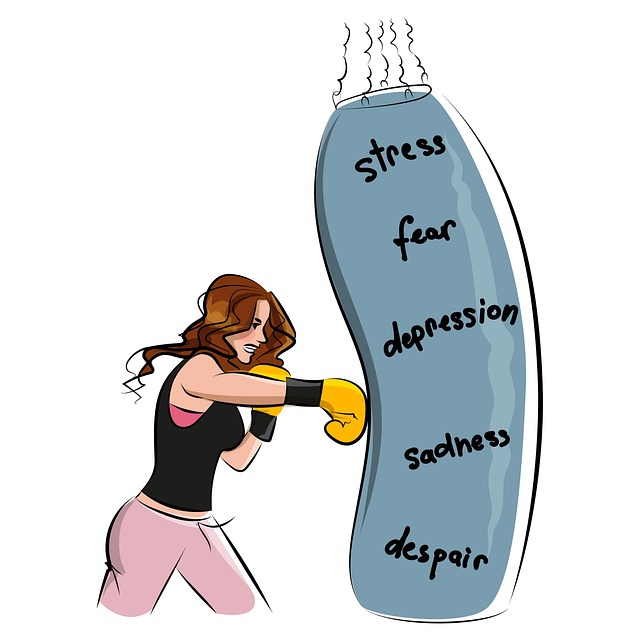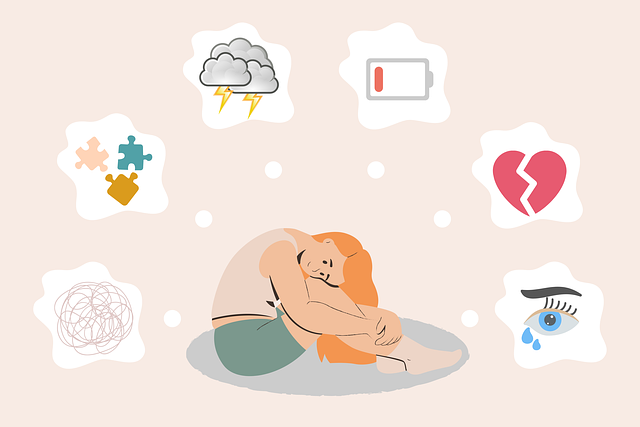Men often face unique stress challenges due to societal expectations, which can lead to anxiety, depression, and unhealthy coping mechanisms like substance abuse. Littleton Men's Issues Therapy offers specialized programs addressing these issues through strategies like Social Skills Training and Risk Management Planning. They also provide tools such as mental wellness journaling, stress management workshops, mindfulness meditation, and a podcast series to empower men to manage stress, improve relationships, and enhance overall well-being. Therapy, structured sessions with trained professionals, helps individuals understand triggers and develop personalized coping strategies for long-term stress management.
Stress management is a crucial aspect of maintaining mental well-being, especially for men navigating the challenges of modern life. This article explores the profound impact of stress on male mental health and introduces effective strategies to combat it. We delve into understanding stress triggers and their unique effects on men, offering practical techniques from mindfulness to therapy. For those in Littleton seeking support, mens issues therapy provides a safe space to learn long-term coping strategies, fostering resilience and improved quality of life.
- Understanding Stress and Its Impact on Men's Mental Health
- Practical Techniques for Effective Stress Management
- The Role of Therapy in Teaching Long-Term Coping Strategies
Understanding Stress and Its Impact on Men's Mental Health

Stress is a ubiquitous aspect of modern life, yet its impact on men’s mental health often goes unnoticed or unaddressed. Traditionally, discussing emotions and seeking help has been less encouraged among men due to societal norms promoting stoicism and self-reliance. This can lead to a buildup of stress, anxiety, and even depression, which are significant mental health issues that require professional intervention. Understanding the subtleties of stress is crucial in Littleton Mens Issues Therapy, where therapists work with individuals to navigate these challenges.
The consequences of unchecked stress are profound. It can impair concentration, affect decision-making abilities, and contribute to a range of physical ailments. Men, in particular, might turn to unhealthy coping mechanisms like substance abuse or self-isolation as a means of managing stress, which can exacerbate existing mental health problems. Social Skills Training and Risk Management Planning for Mental Health Professionals are valuable tools in addressing these issues. By integrating them into therapy sessions, professionals can equip men with effective strategies to manage stress, enhance their mental wellness, and foster healthier relationships, ultimately leading to improved overall well-being.
Practical Techniques for Effective Stress Management

Stress management is an essential aspect of maintaining good mental health, and various practical techniques can help individuals cope effectively. At Littleton Mens Issues Therapy, we believe that teaching these skills empowers people to navigate life’s challenges with resilience. One powerful tool is mental wellness journaling, which encourages reflection and self-awareness. By jotting down thoughts and emotions regularly, individuals can identify patterns, gain insights, and develop strategies to manage stressor triggers. This practice also serves as a safe space for expression, allowing one to process experiences and feelings privately.
In addition to journaling, stress management workshops organized by dedicated institutions offer valuable guidance. These interactive sessions often include a range of techniques such as mindfulness meditation, deep breathing exercises, progressive muscle relaxation, and cognitive-behavioral strategies. For instance, the Mental Wellness Podcast Series Production can provide accessible audio resources, allowing individuals to learn and practice these techniques at their convenience. Engaging in regular activities that promote mental wellness fosters self-care, enhances emotional intelligence, and ultimately contributes to a healthier, happier life.
The Role of Therapy in Teaching Long-Term Coping Strategies

Therapy plays a pivotal role in teaching long-term coping strategies for stress management. Through structured sessions with trained professionals, individuals gain insights into their triggers and develop personalized tools to navigate stressful situations effectively. Littleton Mens Issues Therapy, for instance, offers specialized programs designed to address unique challenges men often face, fostering an environment where open dialogue and exploration of emotions are encouraged.
The process involves not just identifying stress sources but also learning self-care practices and cognitive behavioral techniques that promote mental resilience. Risk assessment for mental health professionals is crucial in ensuring these therapeutic approaches are tailored to individual needs, enhancing the efficacy of the interventions. By integrating mental health education programs into the curriculum, individuals equip themselves with invaluable skills that extend beyond the therapy room, enabling them to lead more balanced and stress-free lives.
In addressing men’s mental health, particularly within the context of Littleton mens issues therapy, it’s clear that stress management techniques play a pivotal role. By understanding the profound impact of stress and implementing practical strategies like those discussed here, individuals can navigate life’s challenges more effectively. Furthermore, incorporating therapeutic support offers a powerful tool for learning long-term coping mechanisms, fostering resilience, and ultimately enhancing overall well-being.














